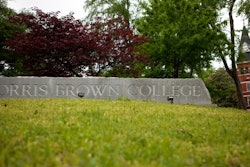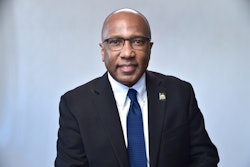For Brenda Christie, the study of Native American law has proven to be not just a way to better understand her Cherokee heritage, but a necessary prerequisite to her current position as a legal services senior staff attorney for the Muscogee (Creek) Nation of Oklahoma. “Naturally I needed the training that you can get from just about any law school,” says Christie, “but the particular program I took also gave me a chance to understand the legal procedures of both the Cherokee and Creek nations.” At the conclusion of that program, Christie received a Native American law certificate.
Offered by the University of Tulsa College of Law, the Native American Law Certificate program, launched in 1990, reflects the school’s mission of trying to better serve American Indians and Alaska Natives in Oklahoma who, according to the 2006 U.S. Census estimates, make up 6.8 percent of the state’s population. This number is significantly larger than the 1 percent they represent nationally.
“We are geographically located within the area of the Muscogee (Creek) Nation,” notes Melissa Tatum, associate professor of law and co-director of the Native American Law Center at the University of Tulsa. The law center opened in 2000 and is designed to build on the success of the school’s Native American Law Certificate program.
“There are also almost 40 federally recognized tribes in Oklahoma, and we are within an easy drive of at least half of them,” Tatum adds.
The University of Tulsa’s program also reflects a larger movement among law schools across the country to both establish as well as expand Native American law course offerings that are increasingly being regarded as a fundamental component of a well-rounded law education. “
There is a greater awareness today in general of the importance of studying both Indian law as well as tribal law,” says Heather Dawn Thompson, president of the National Native American Bar Association and a member of the Cheyenne River Sioux Tribe. “And law schools across the country are gradually but surely responding to that with a variety of different programs.”




















